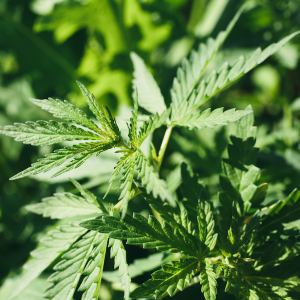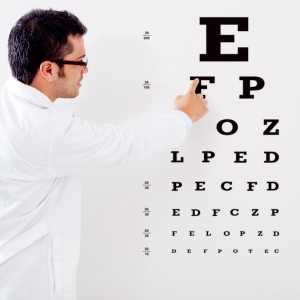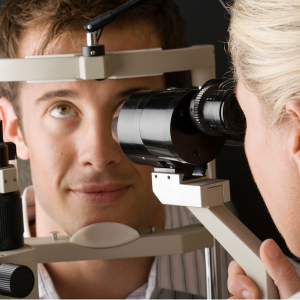CBD for Eye Health
 Research on CBD and eye health has been fairly limited due to federal legality, but the passing of the 2018 United States Farm Bill removed CBD from its classification as a Schedule 1 Drug. This will lead to more freedom in the ability to conduct more studies. The research that has been conducted shows both pros and cons for CBD as related to eye health. CBD is one of several cannabinoids produced in cannabis. Cannabinoids interact with the body’s endocannabinoid system by binding to the CB1 and CB2 receptors in a most commonly analogized lock and key method.
Research on CBD and eye health has been fairly limited due to federal legality, but the passing of the 2018 United States Farm Bill removed CBD from its classification as a Schedule 1 Drug. This will lead to more freedom in the ability to conduct more studies. The research that has been conducted shows both pros and cons for CBD as related to eye health. CBD is one of several cannabinoids produced in cannabis. Cannabinoids interact with the body’s endocannabinoid system by binding to the CB1 and CB2 receptors in a most commonly analogized lock and key method.
According to researchers at the School of Optometry, University of Montreal, Canada, a study on the CB1 and CB2 receptors in modulating electroretinographic waves concluded, “Manipulating the endocannabinoid system might therefore serve as a therapy to restore normal vision and protect the retina”. More research on cannabinoids like CBD for their treatment of glaucoma have been reported from the Department of Ophthalmology, Aberdeen Royal Infirmary, University of Aberdeen, UK. “Classic cannabinoids such as CBD have antioxidant properties that are not mediated by the CB1 receptor. As a result, they can prevent neuronal death by scavenging toxic reactive oxygen species produced by overstimulation of receptors for the excitatory neurotransmitter, glutamic acid.” Increased release of glutamate is  said to be the major cause of retinal cell death, so this suggests CBD could help prevent apoptosis of retinal neurons.
said to be the major cause of retinal cell death, so this suggests CBD could help prevent apoptosis of retinal neurons.
 The same UK study also concluded, “Other possible applications of cannabinoids in ophthalmology could be explored. Age related macular degeneration (AMD) is the leading cause of blindness in the United Kingdom. Perhaps the potent antioxidant properties of the cannabinoids may be beneficial in AMD, offering a possible alternative to established antioxidant supplements”. Although there seems to be several pros in favor of CBD for eye health, some cons have been found in relation to CBD and its effect on interocular eye pressure.
The same UK study also concluded, “Other possible applications of cannabinoids in ophthalmology could be explored. Age related macular degeneration (AMD) is the leading cause of blindness in the United Kingdom. Perhaps the potent antioxidant properties of the cannabinoids may be beneficial in AMD, offering a possible alternative to established antioxidant supplements”. Although there seems to be several pros in favor of CBD for eye health, some cons have been found in relation to CBD and its effect on interocular eye pressure.
A research study with the purpose of assessing the effects of CBD on intraocular pressure (IOP) actually found higher doses of CBD to increase IOP. Their research indicated the “administration of 20 mg CBD did not reduce IOP, whereas 40 mg CBD produced a transient increase IOP rise.” All of this leads me to believe when CBD is administered in proper doses, it can help with AMD, glaucoma, and overall eye health, but more research still needs to be conducted. Hopefully we will see more soon with the legalization of hemp in the United States.




